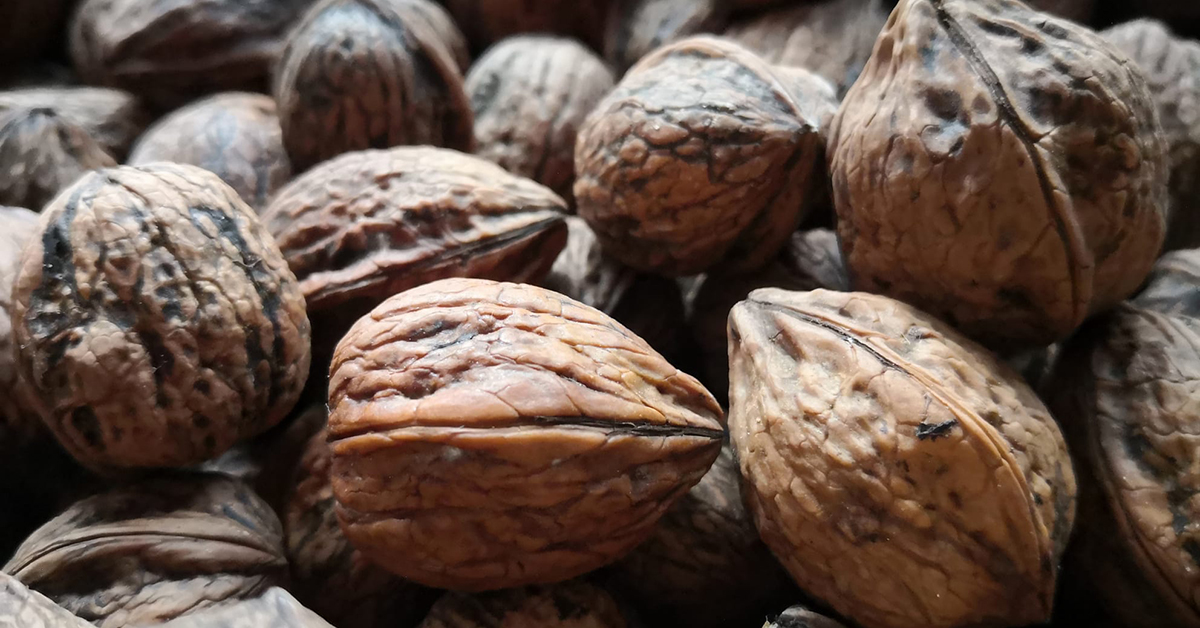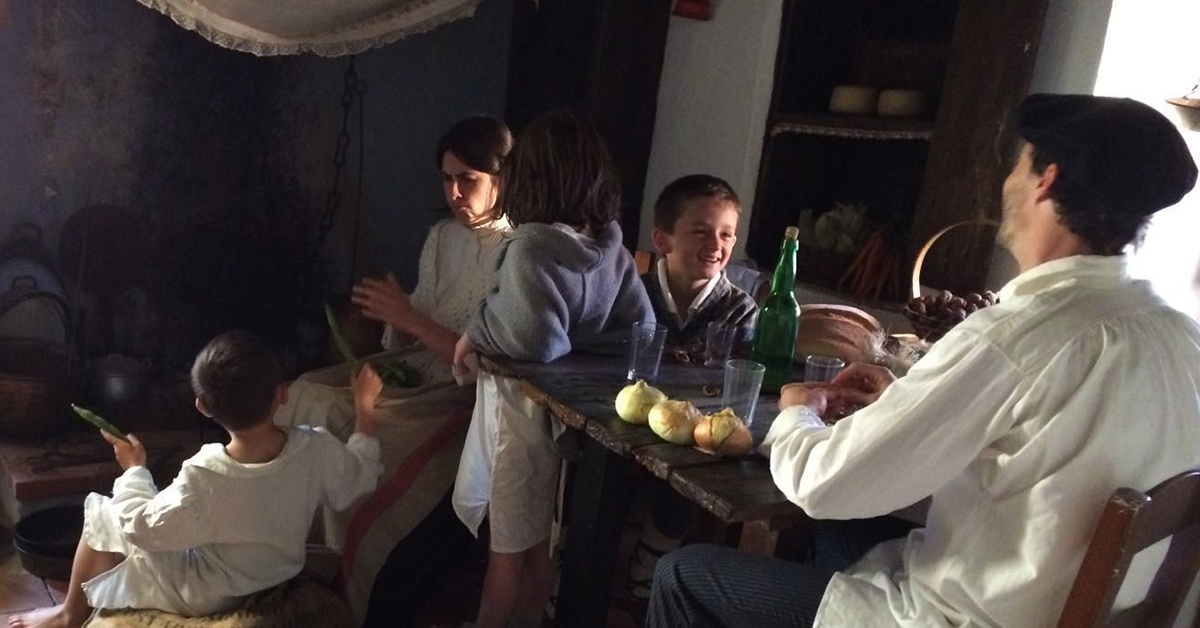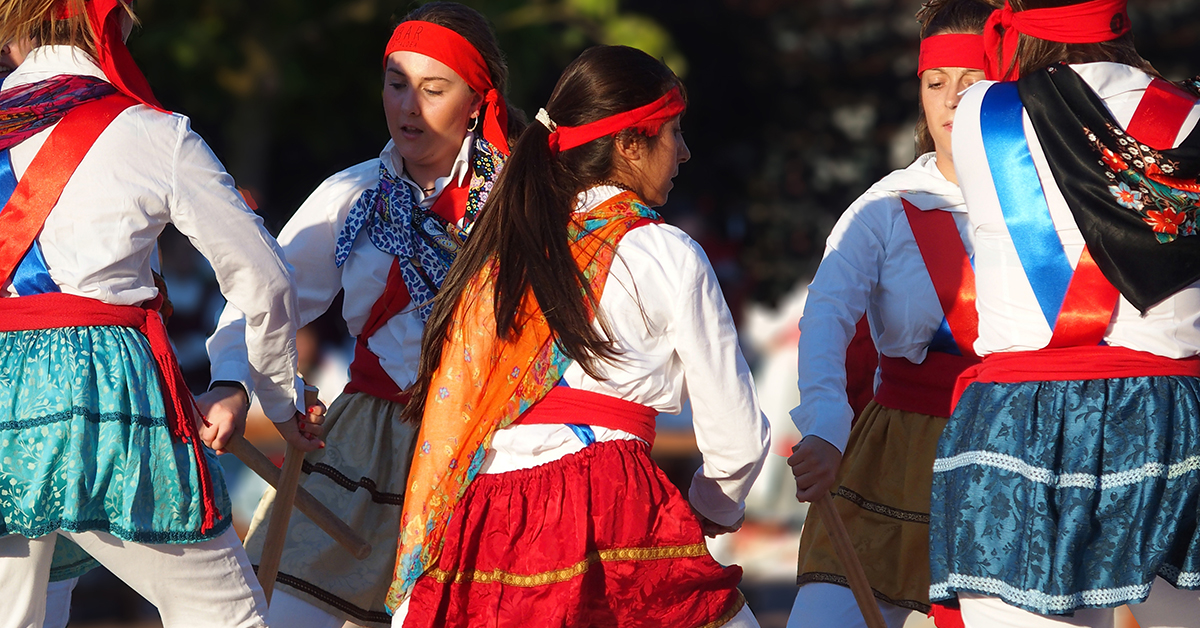Basque ethnography at a glance
Christmas would not be Christmas without walnut sauce, intxaur-saltsea. My grandmother Juli from Larrabetzu (Bizkaia) used to make it year in year out. I vividly remember entering the farmhouse and finding her cracking walnuts open. Her memory shall always remain with me.
Walnut sauce was a popular staple for many households, especially in Bizkaia and Gipuzkoa, where walnut trees abounded in forests and woodlands. A hearty, warming seasonal dish, perfect for the cold winter and as satiating as it is invigorating. (more…)
The house has been for centuries a fundamental pillar of society and the very foundation of our way of life. Family and home have been essentially synonymous concepts in our culture: in fact, instead of the term familia ‘family’ we use the expression etxekoak, from etxe ‘house, home’, to signify ‘them who belong to the house, household’, a clear exponent of the circumstance we try to illustrate. Traditionally, the members of a household make up the house, and conversely, they owe their name and identity to their birthplace, as Xalbador’s beautiful verses remind us. A close, solid and indivisible bond, if ever there was one. (more…)
Dance and creative movement are universal forms of communication and self-expression (language through motion), generally associated with music or rhythm, their creation, preservation and execution having fallen on different social layers throughout history.
Basque ‘traditional’ dance, as we know it, is the result of a process of survival over time, with its ups and downs, and more interruptions, in its performance, than we might think of. Its contours should therefore not fool us into defending a supposed past longevity and authenticity which would force us to travel back to the ‘night of time’. (more…)





